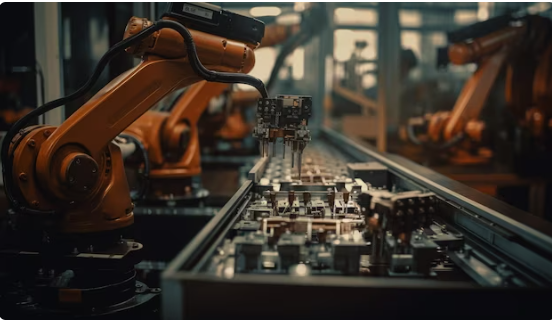Artificial intelligence, once a futuristic concept confined to science fiction, has swiftly become an omnipresent force transforming industries worldwide.
In the Philippines, known globally for its significant contributions to outsourced business process operations, AI’s effects are particularly profound, promising far-reaching implications on the country’s economy and workforce.
With a population that is quick to adapt to technological shifts, the Philippines is poised to benefit significantly from AI’s transformative power.
Among the myriad applications of AI, the outsourced IT sector stands at the forefront of this tech revolution. An increasing number of technical support agents are employing generative AI tools like ChatGPT and Bing to handle customer complaints.
These AI tools not only provide quick solutions but also suggest empathetic, engaging responses to customer queries. This has led to a dramatic increase in the efficiency of support agents, doubling the number of complaints they can handle daily. Therefore, AI can be a boon to productivity if integrated smartly and ethically into daily operations.
While the use of AI technology in customer service is revolutionizing the IT sector, it does come with significant caveats. There’s an underlying concern of over-reliance on AI, risking inappropriate responses to customers.
Furthermore, the rapid AI advancement fuels anxieties about possible job losses among the 1.6 million workers currently employed in the Philippine BPO industry. With this sector contributing a hefty 7.5% to the nation’s economy, it’s crucial to strike a balance between automation and job retention. Ensuring this balance will require the concerted efforts of both public and private sector leaders.
Beyond customer service, other sectors are also tapping into AI’s potential. One notable example is Navix Health, a generative AI startup built entirely by Filipino developers. Navix Health’s AI platform can handle tasks traditionally done by medical receptionists, representing a paradigm shift in healthcare operations.
Although acknowledging the potential displacement of human workers, the company maintains that AI adoption could create new business opportunities, thus generating different kinds of work. This highlights AI’s capacity to reinvent industries in ways that can potentially lead to a net gain in employment.
The sweeping wave of AI technology is not just limited to IT or healthcare. It’s reaching the exciting world of sports betting, providing sophisticated tips on sports betting for the Philippines’ enthusiastic punters.
AI-powered prediction models are making waves, offering bettors insights into game outcomes and betting trends. As a result, bettors can make more informed decisions, increasing their chances of success.
This incorporation of AI into sports betting marks an interesting development, potentially reshaping how enthusiasts approach the game. Embracing AI in such leisure activities could lead to an unexpected economic windfall and further boost the Philippines’ technology reputation.
Facing the rise of AI, the Philippines is taking steps to adapt. The IT and Business Process Association of the Philippines has established an AI Council, aiming to upskill BPO workers for higher-value tasks that AI cannot yet tackle.
While the timeline for these upskilling programs remains undefined, it marks an important initiative to prepare the workforce for an AI-driven future. This proactivity in addressing the AI transformation shows a clear understanding of the impending shift in the job landscape.
In the political arena, legislators are increasingly cognizant of AI’s implications. Senator Imee Marcos has called for an inquiry into AI’s potential to displace workers, emphasizing the urgency to address this “inevitable technological tsunami”.
Policymakers are also being urged to understand global AI developments to devise effective strategies that protect jobs while harnessing the benefits of AI. Such a forward-thinking perspective from the political echelon will be crucial in guiding the Philippines through the AI revolution.
With the rapid progression of artificial intelligence technologies, substantial impacts are being felt across the Philippine economy and employment landscape. The careful orchestration of enhanced efficiency through AI, while ensuring job security, necessitates an ongoing commitment to skills enhancement and strategic policymaking.
While navigating towards a future powered by AI may come with its share of hurdles, the forward-thinking initiatives of the Philippines hint at a promising prospect where human creativity and AI can harmoniously flourish.
Moving forward, the objective should expand beyond merely adapting to AI–we must focus on leveraging its immense capacity for both societal progress and economic prosperity.




